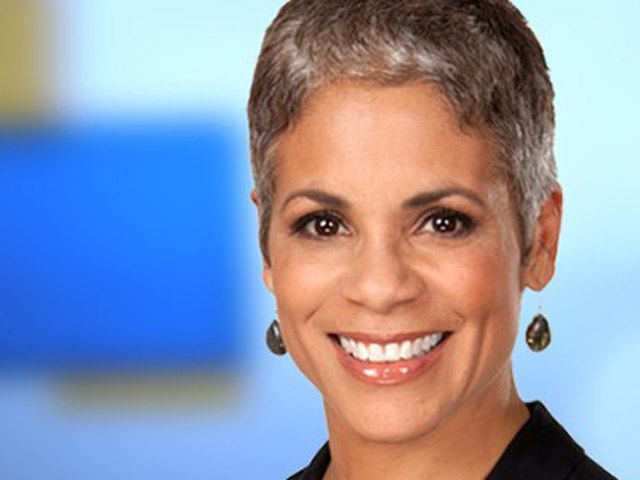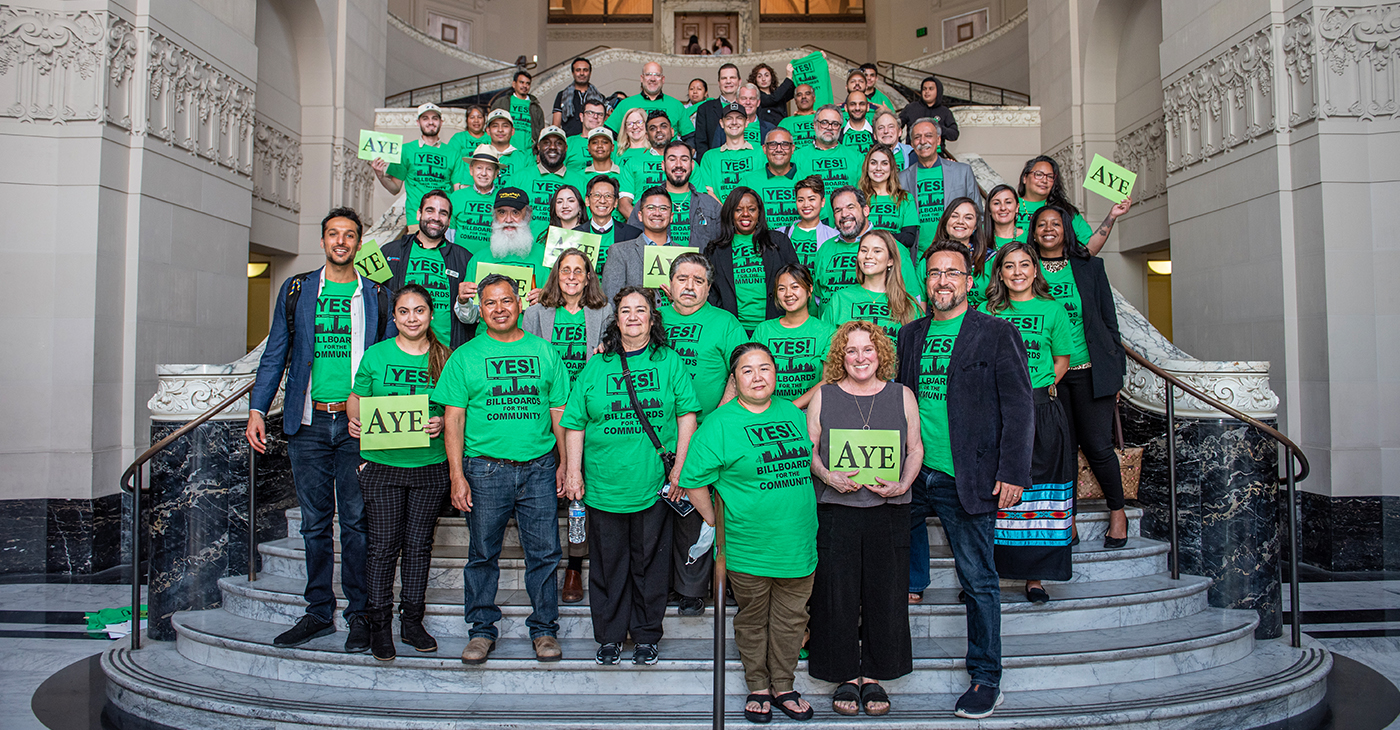Activism
San Francisco Proposes Art Installation to Honor Black Lives, History of African Americans
The sculptural figures created in all-black steel with vinyl tubing, each standing four feet high, would surround the empty pedestal where a statue of Francis Scott Key once stood. Key, who wrote the lyrics to “The Star-Spangled Banner,” was a slave owner and abolition opponent.

San Francisco, CA. – Mayor London N. Breed today announced the City of San Francisco is planning a new public art installation to honor Black lives and the history of African Americans. The installation is planned to be located in Golden Gate Park’s Music Concourse next month, in time for Juneteenth.
The installation, ‘Monumental Reckoning,’ by Bay Area sculptor Dana King, honors the first Africans stolen from their homeland and sold into chattel slavery in the New World. The installation consists of 350 sculptures representing the number of Africans initially forced onto the slave ship San Juan Bautista for a journey of death and suffering across the Atlantic in 1619. A handful of these original 350 ancestors became America’s first enslaved people.
The sculptural figures created in all-black steel with vinyl tubing, each standing four feet high, would surround the empty pedestal where a statue of Francis Scott Key once stood. Key, who wrote the lyrics to “The Star-Spangled Banner,” was a slave owner and abolition opponent. Protestors toppled the statue on Juneteenth 2020.
“The art and monuments that we choose to display in our city and the civic art that fills our public spaces must reflect the diversity of our community, and honor our history,” said Breed. “This powerful public art installation in Golden Gate Park will help us not only commemorate Juneteenth, but also serve as an example of how we can honor our past, no matter how painful, and reflect on the challenges that are still with us today.”
Monumental Reckoning would allow visitors to commune with the figures. The phrase “Lift Every Voice” would shine from atop the nearby Spreckels Temple of Music through a second, connected piece by Illuminate the Arts. These are the first three words of “Lift Every Voice and Sing”, a song written by civil rights champion James Weldon Johnson which was first performed in 1900—the same year the Spreckels Temple of Music opened.
For more than a century, Johnson’s song of unity has been sung as the Black national anthem. U.S. Representative James Clyburn is currently leading an effort to have the song named America’s national hymn.
“I’m excited to see the new monument go up in Golden Gate Park to honor Black lives and the rich history of African Americans,” said Board of Supervisors President Shamann Walton. “I think this is a perfect example of trying to right a wrong. Rather than uplifting individuals with oppressive histories, this is an opportunity to honor diversity and our community through public art.”
The installation was approved by both the San Francisco Arts Commission and the San Francisco Recreation and Park Commission’s Operations Committee this week. It is currently under review by the Planning Commission. “Lift Every Voice” will also need to be approved by the City’s Historical Preservation Committee before it can be installed. If approved, Monumental Reckoning would open to the public on June 19, or Juneteenth 2021, which commemorates the end of slavery in the U.S. The art piece would remain in place through June 20, 2023.
“The memory of African descendants deserves to be told truthfully and publicly,” said King, Monumental Reckoning’s creator. “Monumental Reckoning fulfills both objectives with the installation of 350 ‘ancestors’ who will encircle the Francis Scott Key plinth in Golden Gate Park. The ancestors stand in judgement, holding history accountable to the terror inflicted on the first group of enslaved people brought here in 1619 to the last person sold to another, all victims of chattel slavery. Even though the business of enslavement ended long ago, it still resonates generationally for African Americans and forms the bedrock from which systems of oppression proliferate today.”
Fundraising, community outreach, and ongoing support for the installation is being provided by the Museum of the African Diaspora. Creative and programming support would be provided by The Black Woman is God, which is an annual group exhibition of Black women artists curated by Karen Seneferu and Melorra Green. The project celebrates Black women as essential to building a more just society and sustainable future and reclaims space historically denied to Black women artists.
“What Dana King’s powerful installation communicates and commemorates is a sober cultural gut-punch long overdue, and I hope it’s the beginning of many such visual testaments in the public realm that venerate the origin stories of our most marginalized and disenfranchised populations,” said Ralph Remington, San Francisco’s Director of Cultural Affairs. “We almost never see images of Black people represented in our public monuments, or in the American telling of history. So, it’s no surprise that in a society rooted in white supremacy, people of color remain invisible and undervalued in our mythology, symbols, architecture and national narrative. While the City examines the historic works in our Civic Art Collection and the future of monuments in San Francisco, this installation will help build and advance a discourse about who and what we venerate in our open spaces.”
“We are incredibly proud to host this powerful piece,” said San Francisco Recreation and Park Department General Manager Phil Ginsburg. “Monumental Reckoning prompts frank discussion about the legacy of slavery, while charting a course between past, present and future. We are grateful to have these crucial conversations in Golden Gate Park—a beloved public space that belongs to everyone.”
This story was produced by the San Francisco Mayor’s office.
Activism
Oakland Post: Week of July 24 – 30, 2024
The printed Weekly Edition of the Oakland Post: Week of July 24 – 30, 2024

To enlarge your view of this issue, use the slider, magnifying glass icon or full page icon in the lower right corner of the browser window. ![]()
Activism
Oakland Post: Week of July 17 -23, 2024
The printed Weekly Edition of the Oakland Post: Week of July 17 -23, 2024

To enlarge your view of this issue, use the slider, magnifying glass icon or full page icon in the lower right corner of the browser window. ![]()
Activism
Community Celebrates Historic Oakland Billboard Agreements
We, the Oakland Billboard Economic Development Coalition, which includes Oakland’s six leading community health clinics, all ethnic chambers of commerce, and top community-based economic development organizations – celebrate the historic billboard agreements approved last year by the Oakland City Council. We have fought for this opportunity against the billboard monopoly, against Clear Channel, for five years. The agreements approved by Council set the bar for community benefits – nearly $70 Million over their lifetime, more than 23 times the total paid by all previous Clear Channel relocation agreements in Oakland combined.

Grand Jury Report Incorrect – Council & Community Benefit
We, the Oakland Billboard Economic Development Coalition, which includes Oakland’s six leading community health clinics, all ethnic chambers of commerce, and top community-based economic development organizations – celebrate the historic billboard agreements approved last year by the Oakland City Council. We have fought for this opportunity against the billboard monopoly, against Clear Channel, for five years. The agreements approved by Council set the bar for community benefits – nearly $70 Million over their lifetime, more than 23 times the total paid by all previous Clear Channel relocation agreements in Oakland combined.
Unfortunately, a recent flawed Grand Jury report got it wrong, so we feel compelled to correct the record:
- Regarding the claim that the decision was made hastily, the report itself belies that claim. The process was five years in the making, with two and a half years from the first City Council hearing to the final vote. Along the way, as the report describes, there were multiple Planning Commission hearings, public stakeholder outreach meetings, a Council Committee meeting, and then a vote by the full Council. Not only was this not hasty, it had far more scrutiny than any of the previous relocation agreements approved by the City with Clear Channel, all of which provide 1/23 of the benefits of the Becker/OFI agreements approved by the Council.
- More importantly, the agreements will actually bring millions to the City and community, nearly $70M to be exact, 23 times the previous Clear Channel relocation agreements combined. They certainly will not cost the city money, especially since nothing would have been on the table at all if our Coalition had not been fighting for it. Right before the decisive City Council Committee hearing, in the final weeks before the full Council vote, there was a hastily submitted last-minute “proposal” by Clear Channel that was debunked as based on non-legal and non-economically viable sites, and relying entirely on the endorsement of a consultant that boasts Clear Channel as their biggest client and whose decisions map to Clear Channel’s monopolistic interests all over the country. Some City staff believed these unrealistic numbers based on false premises, and, since they only interviewed City staff, the Grand Jury report reiterated this misinformation, but it was just part of Clear Channel’s tried and true monopolistic practices of seeking to derail agreements that actually set the new standard for billboard community benefits. Furthermore, our proposals are not mutually exclusive – if Clear Channel’s proposal was real, why had they not brought it forward previously? Why have they not brought it forward since? Because it was not a real proposal – it was nothing but smoke and mirrors, as the Clear Channel’s former Vice President stated publicly at Council.
Speaking on behalf of the community health clinics that are the primary beneficiaries of the billboard funding, La Clinica de la Raza CEO Jane Garcia, states: “In this case, the City Council did the right thing – listening to the community that fought for five years to create this opportunity that is offering the City and community more than twenty times what previous billboard relocation agreements have offered.”
Oakland Billboard Economic Development Coalition
| Native American Health Center | La Clínica de la Raza | West Oakland Health Center |
| Asian Health Services | Oakland LGBTQ Center | Roots Community Health Center |
| The Unity Council | Black Cultural Zone | Visit Oakland |
| Oakland African American Chamber of Commerce | Oakland Chinatown Chamber of Commerce | Oakland Vietnamese Chamber of Commerce |
| Oakland Latino Chamber of Commerce | Building Trades of Alameda County | (partial list) |
-

 Arts and Culture3 weeks ago
Arts and Culture3 weeks agoRooted in Tradition: The Intricate History of Black Hair Braiding
-

 Bay Area4 weeks ago
Bay Area4 weeks ago“I Will Not Be Bullied,” Says Oakland Mayor Sheng Thao
-

 Bay Area2 weeks ago
Bay Area2 weeks agoPG&E Increases Rates While Bay Area Households Are Struggling to Stay Afloat
-

 Business3 weeks ago
Business3 weeks agoGov Newsom: Raising Fast Food Minimum Wage to $20 Pays Off as Jobs Multiply in Industry
-

 Activism4 weeks ago
Activism4 weeks agoOpponents of Mayor Sheng Thao Are Calling on Her to Resign Following FBI Raid
-

 Community1 week ago
Community1 week agoHundreds Come to Jehovah’s Witnesses’ Assembly Hall for Three-Day Program of ‘Good News’ in Fremont
-

 Bay Area2 weeks ago
Bay Area2 weeks agoJuneteenth Mass Shooting Suspect Charge with Multiple Counts of Felony Assault by Alameda County DA Pamela Price
-

 Activism4 weeks ago
Activism4 weeks agoOakland Coliseum Sale to AASEG: A Model for Community Development and Inclusion

















































